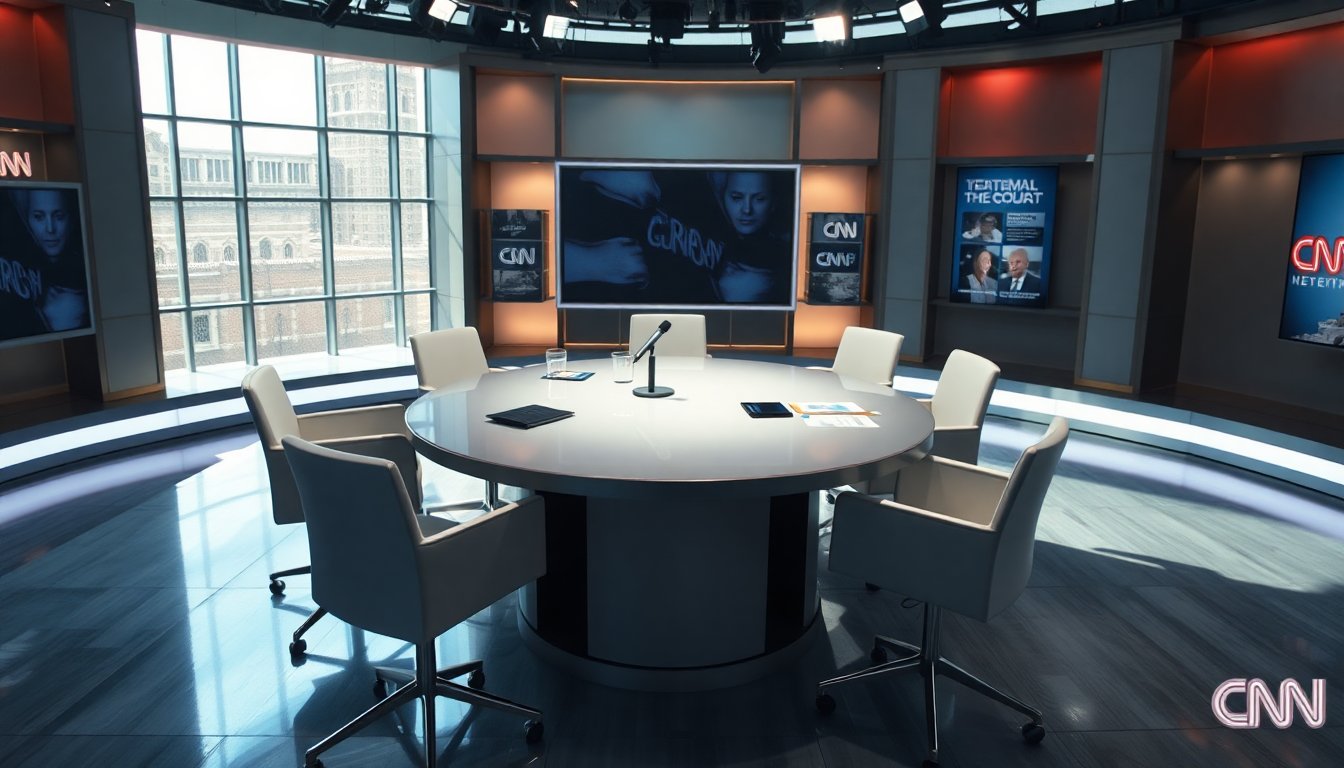Table of Contents
Ilhan Omar Discusses Social Media Remarks on CNN’s ‘The Source’
In a recent episode of CNN’s ‘The Source,’ host Kaitlan Collins interviewed Rep. Ilhan Omar regarding her controversial social media activity following the assassination of Charlie Kirk, co-founder of Turning Point USA. The discussion turned particularly intense as Collins questioned the appropriateness of Omar’s comments and a video she shared, which drew a metaphorical link between Kirk and the infamous character, Dr. Frankenstein.
During the interview, Collins challenged Omar to justify her decision to share a video that stated, “Kirk was Dr. Frankenstein and his monster shot him through the neck.” Omar responded by defending her stance, saying, “While I don’t agree with every word in the video, I resonate with its overall message. Charlie Kirk was a man who propagated hate against various identities, including mine.” This exchange opened a dialogue about free speech and the associated responsibilities that come with public discourse.
The Circumstances Surrounding Charlie Kirk’s Assassination
Charlie Kirk was assassinated on September 10 while addressing an audience at Utah Valley University. This shocking event has sparked nationwide discussions about the implications of political rhetoric and the state of public discourse in contemporary society. Collins underscored the profound sensitivity surrounding Kirk’s death, noting that he was not only a prominent public figure but also a devoted husband and father. This perspective calls for careful consideration in any commentary regarding his life and legacy, particularly in light of the profound impact on his grieving family.
The Nature of Public Criticism
Representative Ilhan Omar criticized the notion of honoring Charlie Kirk, citing his controversial and harmful statements. She stated, “I find it troubling that there are calls to honor Kirk without addressing the unacceptable language he used throughout his career. Just because someone has family and friends who loved them does not excuse the hurtful rhetoric they spread.” This viewpoint challenges the traditional discourse surrounding the legacies of public figures after their death.
In response, Collins acknowledged Omar’s perspective but emphasized the need for human compassion in the discussion. “It’s imperative to remember that Charlie Kirk was a person whose life was tragically cut short, and as such, the way we discuss him should reflect a level of respect,” she remarked. This exchange highlights the ongoing debate between the principles of free expression and the ethical considerations involved in discussing deceased individuals.
Public Reactions and Broader Implications
The exchange between Collins and Omar reflects a wider national dialogue regarding the impact of political discourse on societal perceptions and reactions. In the aftermath of Kirk’s death, various media outlets and public figures voiced their opinions. Some lauded his contributions to the conservative movement, while others criticized his divisive rhetoric.
Omar highlighted that Kirk had previously dismissed critical social issues, such as police brutality and the historical injustices faced by marginalized communities. She remarked, “His statements regarding gun control and the trivialization of events like school shootings show a troubling pattern of behavior that cannot be overlooked, even in death.” This critique prompts essential discussions about accountability in political speech.
The Role of Media in Shaping Narratives
The media’s representation of public figures, such as Kirk, plays a crucial role in shaping public perception. Omar emphasized the responsibility of journalists and commentators to navigate these narratives thoughtfully, particularly when addressing individuals with controversial legacies. Collins, while challenging Omar’s viewpoint, recognized the need for a careful balance between critique and respect in media discussions.
As the interview progressed, the impact of social media on public discourse became increasingly clear. Omar’s readiness to share provocative content on platforms like Twitter reflects the changing landscape of political communication. She remarked, “We share videos and opinions that reflect our beliefs, and while not everyone may agree, it is crucial to foster discussions, even if they are uncomfortable.” This statement highlights the intricate relationship between social media, political expression, and the responsibilities that accompany such engagement.
Conclusion: Navigating the Landscape of Political Discourse
The recent exchange between Representatives Collins and Omar illustrates the broader societal debate surrounding the discussion and commemoration of public figures, especially those with controversial legacies. As the political landscape evolves, our understanding of free speech, respect, and the consequences of our words must also progress. In an era where social media can amplify every opinion instantly, the need for thoughtful engagement is more important than ever.


